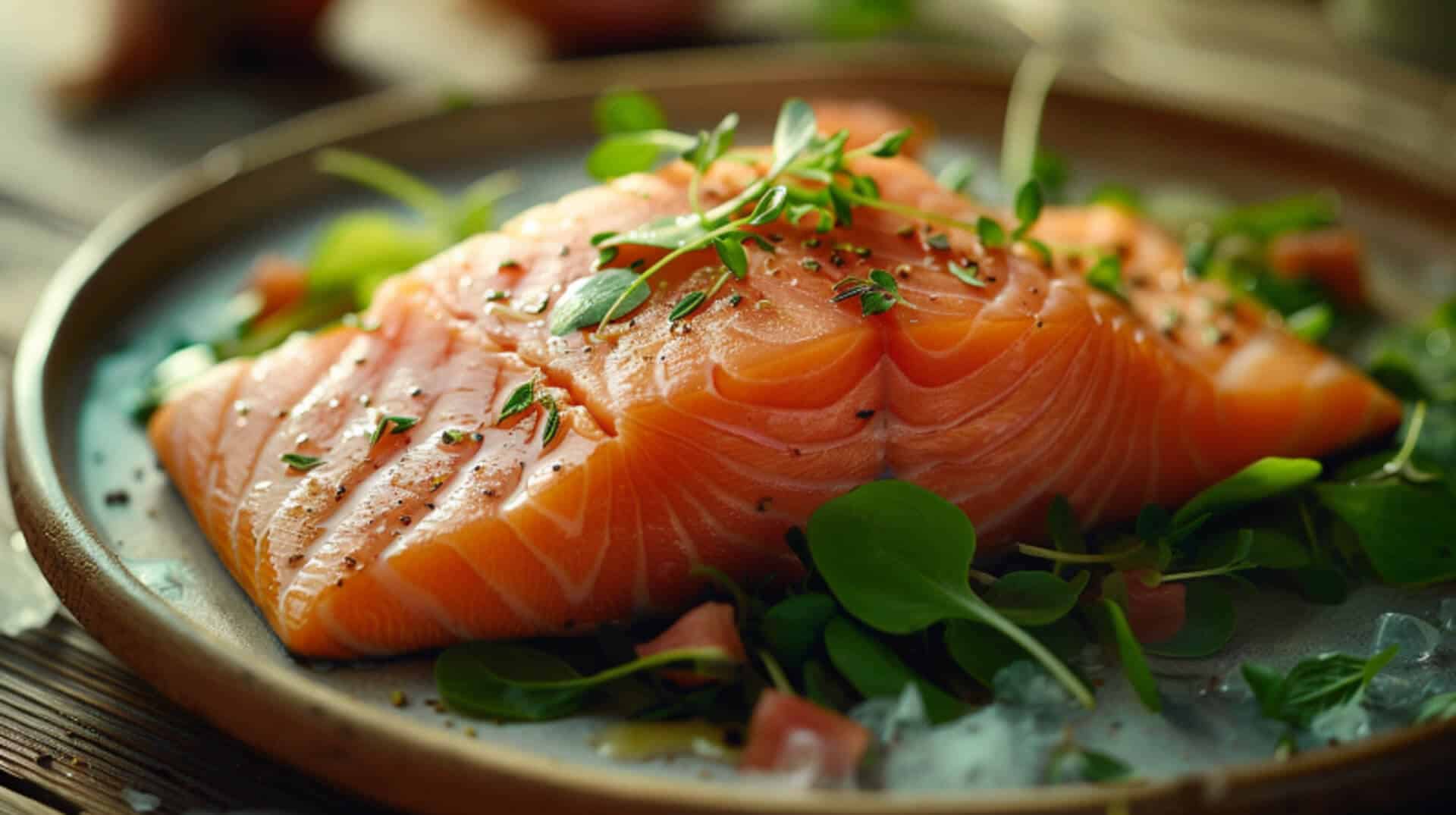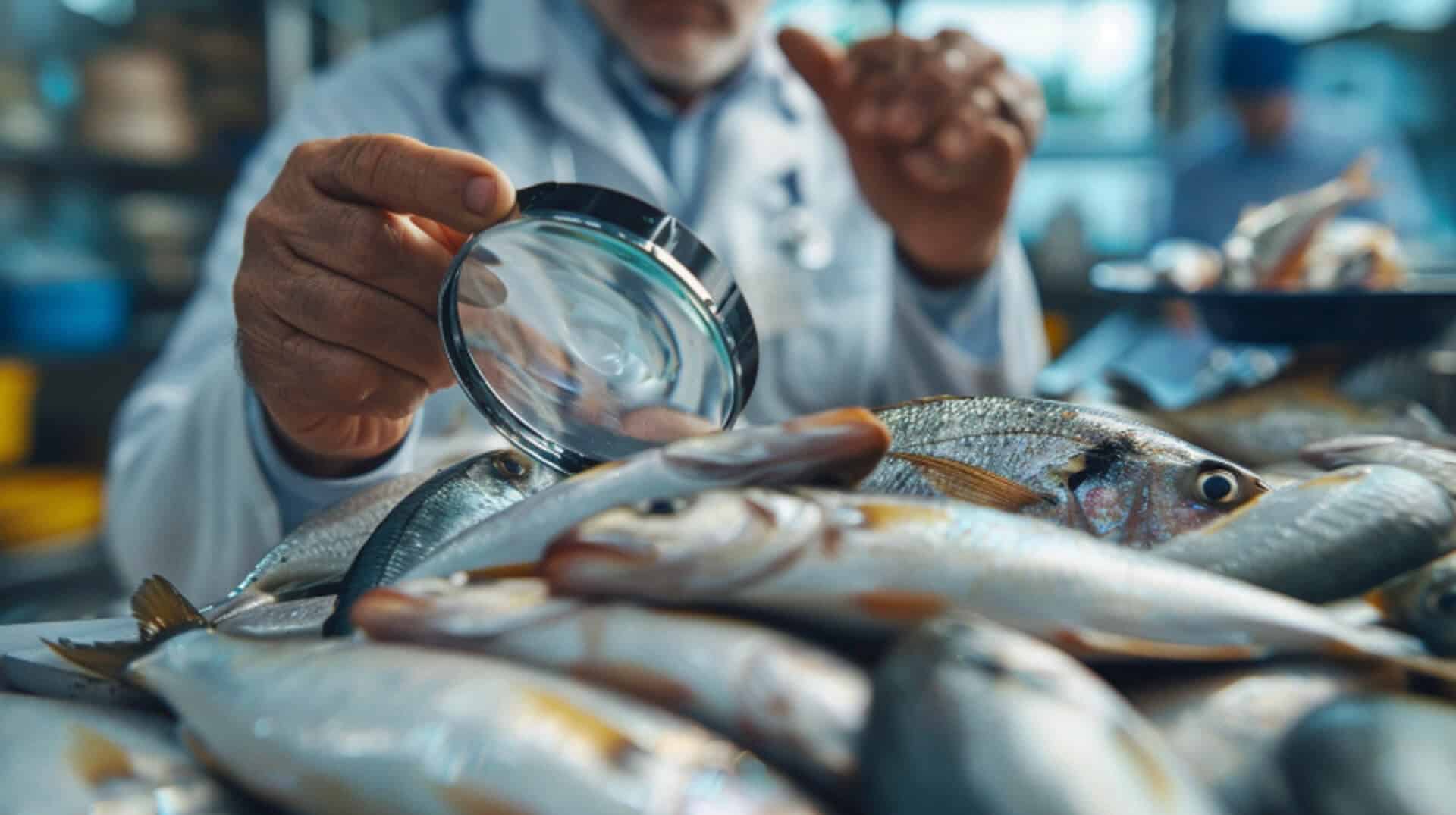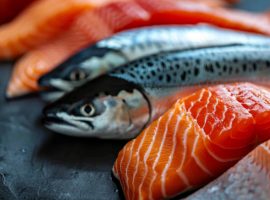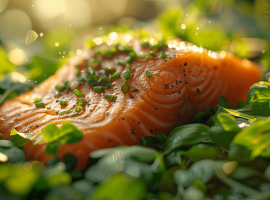Magnesium in Aquatic Diets: Why It Matters?
Magnesium is a pivotal mineral in human health, orchestrating over 300 biochemical reactions that are vital for nerve transmission, muscle contraction, and maintaining a healthy heartbeat. It also plays a role in bolstering the immune system and supporting bone health. When individuals consume fish rich in magnesium, they reap the benefits of this essential nutrient, which may improve cardiovascular health and aid in the prevention of diseases such as hypertension and diabetes.
Preferred Source of Magnesium: Fish Over Supplements
Fish emerges as a superior source of magnesium compared to supplements due to its natural composition and the presence of other beneficial nutrients, such as omega-3 fatty acids. These compounds work synergistically within the body, enhancing the absorption and utilisation of magnesium. Moreover, the bioavailability of magnesium from fish is generally higher, making it a more effective means of meeting dietary needs.
Variability of Magnesium Content in Fish
The magnesium content in fish can vary significantly among species. Factors influencing these levels include the fish’s diet, the water in which it resides, and its overall metabolism. For instance, fatty fish like mackerel and halibut tend to have higher magnesium content compared to leaner fish. Understanding these variances is crucial for individuals seeking to optimise their magnesium intake through diet.
Identifying Magnesium-Rich Fish Varieties

When seeking dietary sources of magnesium, certain fish species stand out for their significant content of this essential mineral. Tuna and mackerel are exemplary, with mackerel providing approximately 97 milligrammes of magnesium per 100-gramme serving. Comparatively, other fish such as pollock, salmon, and halibut also contribute to magnesium intake, albeit to varying degrees.
Magnesium Content in Popular Fish
The magnesium content in fish can vary based on several factors. For instance, the type of fish, the waters in which they are found, and their diet all play a role in determining magnesium levels. Tuna, known for its robust flavour and texture, offers a commendable amount of magnesium, making it a suitable choice for those looking to increase their intake through seafood.
Prioritising Fish for Magnesium Intake
Prioritisation of fish for magnesium intake should consider both the magnesium content and the presence of other nutrients that synergize with magnesium for optimal health benefits. Fish such as salmon not only provide magnesium but are also rich in omega-3 fatty acids, which are beneficial for heart and brain health.
Factors Affecting Magnesium Levels
The environment in which fish are harvested can influence their magnesium content. Wild-caught fish, for example, tend to have a more varied diet and potentially higher magnesium levels compared to farm-raised counterparts. Additionally, the age and maturity of the fish can affect nutrient composition, including magnesium.
Nutritional Profiles: Magnesium in Seafood

Seafood stands as a commendable source of magnesium, often surpassing other dietary options such as fruits and vegetables. For example, a 100-gramme serving of cooked halibut provides about 26 milligrammes of magnesium, which is more than what is found in a similar serving of broccoli.
Understanding Magnesium Levels on Seafood Labels
When examining seafood labels, the magnesium content is typically not listed, requiring consumers to refer to nutritional databases or guidelines provided by health authorities. These resources can assist in making informed decisions about seafood purchases based on magnesium content.
Additional Nutritional Benefits of Magnesium-Rich Fish
Beyond magnesium, these fish are replete with omega-3 fatty acids, lean protein, and various vitamins and minerals, contributing to a well-rounded nutritional profile. This synergy of nutrients supports cardiovascular health, cognitive function, and overall well-being.
Influence of Seafood’s Origin on Magnesium Content
The origin of seafood, whether wild-caught or farm-raised, can influence its nutrient composition. Wild-caught fish often have a more diverse diet, which can lead to higher magnesium levels. Conversely, farm-raised fish may have consistent magnesium levels due to controlled diets but can lack the variety of nutrients found in wild fish.
Optimal Cooking Methods for Magnesium Preservation

Preserving Magnesium Through Cooking Techniques
To maximise the retention of magnesium in fish, steaming and baking are recommended. These methods prevent the leaching of minerals into cooking water, unlike boiling, which can result in a significant loss of magnesium. Grilling and pan-frying are also viable options, as they do not involve water and therefore help preserve the magnesium content.
Nutrient Profile and Fish Preparation
The preparation of fish significantly influences its nutrient profile. Incorporating acidic components like lemon juice may enhance the bioavailability of magnesium, making it easier for your body to absorb. Conversely, deep-frying fish not only reduces magnesium content but also adds unhealthy fats, detracting from the overall nutritional value.
Cooking Methods to Avoid
To maintain optimal magnesium levels, it is advisable to avoid boiling fish, especially in large volumes of water where minerals can be lost. Similarly, overcooking can degrade magnesium as well as other delicate nutrients, so it is best to cook fish just until it reaches the appropriate internal temperature.
Enhancing Magnesium Bioavailability
Certain culinary techniques can indeed enhance the bioavailability of magnesium in fish. For instance, pairing fish with foods high in vitamin D can improve magnesium absorption. Additionally, marinating fish in a mixture containing vinegar or lemon juice can start breaking down the proteins, making the magnesium more accessible for absorption.
Assessing Mercury Risks in Magnesium-Rich Fish

Weighing Magnesium Benefits Against Mercury Exposure
The health benefits of magnesium in fish are substantial, including support for cardiovascular and neurological health. However, these must be balanced against the risks of mercury exposure, which can have adverse neurological effects. To mitigate these risks, it is essential to select fish known for lower mercury levels, such as salmon and sardines, which also offer high magnesium content.
Guidelines for Safe Fish Consumption
Health organisations provide guidelines to help balance the benefits of fish consumption with mercury exposure risks. They typically recommend consuming a variety of fish and limiting intake of high-mercury species like shark, swordfish, and king mackerel. For most adults, two servings of low-mercury fish per week is advised.
Choosing Low-Mercury, Magnesium-Rich Fish
Fish species such as wild-caught salmon, Atlantic mackerel, and sardines are known for their higher magnesium content and lower mercury levels, making them safer choices. These species provide a way to enhance magnesium intake while minimising potential mercury-related health risks.
Making Informed Seafood Choices
To minimise health risks, consumers should consult seafood advisories and opt for smaller fish, which typically accumulate less mercury. Additionally, understanding the source and type of fish can guide safer choices, as wild-caught fish in unpolluted waters are generally lower in mercury.
The Role of Magnesium in Disease Prevention

Evidence Linking Magnesium to Heart Disease and Diabetes Mitigation
Research indicates that magnesium plays a pivotal role in cardiovascular health, with studies suggesting a correlation between adequate magnesium intake and a reduced risk of heart disease. Magnesium’s ability to improve lipid profiles and lower blood pressure is central to its cardioprotective effects. Similarly, magnesium assists in glucose metabolism, which may help in the prevention and management of diabetes by improving insulin sensitivity.
Magnesium’s Correlation with Mental Health
Magnesium’s benefits extend to mental health, where it functions as a cofactor for neurotransmitter synthesis. It is associated with reduced symptoms of depression and anxiety, suggesting that regular consumption of magnesium-rich fish could support mental well-being.
Stroke Risk Reduction Through Magnesium Intake
A diet rich in magnesium, particularly from seafood, has been linked to a lower incidence of stroke. The mineral’s vasodilatory effect, which aids in maintaining healthy blood vessels, is believed to contribute to this protective outcome.
Impact of Magnesium on Blood Pressure and Bone Health
Magnesium’s role in bone health is well-documented, with its presence being crucial for bone density maintenance. It also acts as a natural calcium channel blocker, which helps in managing blood pressure levels. Regular intake of magnesium through fish consumption can therefore support both bone strength and circulatory health.
Incorporating Magnesium-Rich Fish into Your Diet
Incorporating magnesium-rich fish into one’s diet can be both a delicious and nutritious endeavour. For those looking to enhance their magnesium intake, including fish such as salmon, mackerel, and halibut in regular meals is a wise choice.
Simple Meal Ideas Featuring High-Magnesium Fish
- Grilled Mackerel: A simple yet flavourful option, grilling preserves the magnesium content.
- Baked Salmon: Easy to prepare, baking salmon with a drizzle of olive oil and herbs can boost your magnesium intake.
- Halibut Stir-fry: Quickly cooked with vegetables, halibut can be a magnesium-rich centrepiece of a balanced meal.
Contributions of Pescatarian and Nordic Diets to Magnesium Intake
Both pescatarian and Nordic diets emphasise the consumption of seafood, inherently increasing the intake of magnesium. These diets are rich in fish, providing a natural and balanced way to consume this essential mineral.
Considerations for Dietary Restrictions or Allergies
For individuals with dietary restrictions or allergies, it is important to select fish that align with their health needs while still providing the benefits of magnesium. Consulting with a healthcare provider can help in making informed choices that accommodate specific dietary requirements.
Sustainable Selection of Magnesium-Rich Fish
Choosing magnesium-rich fish with sustainability in mind is crucial for both environmental and health reasons. Sustainable fishing practices ensure the long-term viability of fish populations and ecosystems, which in turn supports the continued availability of nutrient-rich seafood.
Environmental Impact of Seafood Choices
When selecting seafood, it’s important to consider the environmental impacts of fishing practices. Overfishing and destructive methods can deplete fish stocks and damage habitats. Opting for fish from well-managed fisheries or those certified by environmental organisations can help mitigate these effects.
Influence of Fishing Practices on Nutrient Content
The magnesium content of fish can be influenced by the environment in which they are caught. Sustainable fishing practices that maintain natural populations and habitats can result in fish with higher and more consistent levels of magnesium and other nutrients.
“Frozen Fish Direct” and Sustainable Practices
Frozen Fish Direct,” a UK-based family-owned company, plays a pivotal role in providing sustainable, magnesium-rich fish options. Their commitment to quality and sustainability ensures that customers receive not only fresh-frozen fish but also products sourced with environmental responsibility. This approach supports the health of both the consumer and the planet.
Recognising Signs of Magnesium Deficiency
Magnesium deficiency, though often overlooked, can manifest in various symptoms that impact overall well-being. You might experience signs such as muscle cramps, fatigue, and irregular heart rhythms. These symptoms are your body’s way of signalling the need for more magnesium, a mineral pivotal for numerous biochemical reactions.
Addressing Magnesium Shortfalls Through Diet
Increasing the consumption of magnesium-rich fish is a practical strategy to counteract deficiency. Fish such as salmon, mackerel, and halibut are not only excellent sources of magnesium but also provide a host of other nutrients beneficial for health.
Complementary Foods for Magnesium Intake
To further enhance magnesium intake, consider incorporating a variety of foods like dark leafy greens, nuts, seeds, and legumes into your diet. These foods, alongside magnesium-rich fish, create a nutrient-dense diet that can help maintain adequate magnesium levels.
Commitment to Nutrient Quality by “Frozen Fish Direct”
“Frozen Fish Direct” ensures the quality and nutrient content of their fish through stringent sourcing standards. They prioritise fresh-frozen fish from sustainable fisheries, which helps preserve the natural magnesium content while supporting environmental stewardship.
Fish Versus Other Magnesium Sources: A Nutritional Standoff
When comparing fish to other sources of magnesium such as nuts, seeds, and leafy greens, fish offers a unique nutritional profile. While plant-based sources are rich in magnesium, fish provides the added benefit of high-quality protein and essential omega-3 fatty acids, which are not as abundant in nuts and greens.
Advantages of Magnesium from Fish
The advantages of obtaining magnesium from fish include:
- Enhanced Absorption: The presence of omega-3 fatty acids in fish may improve the body’s ability to absorb magnesium.
- Additional Nutrients: Fish is a source of vitamin D and selenium, which work in concert with magnesium to support overall health.
Nutrient Synergies in Fish
Unique nutrient synergies in fish, such as the combination of magnesium with omega-3 fatty acids, contribute to cardiovascular health and cognitive function, making fish a superior choice for a nutrient-dense diet.
Balancing Dietary Magnesium Sources
To achieve a balanced diet, consumers should aim to include a variety of magnesium sources:
- Diversify Intake: Combine fish with plant-based sources like spinach, quinoa, and almonds.
- Weekly Meal Planning: Integrate fish servings a couple of times per week while incorporating nuts and seeds as daily snacks or meal components.
By combining these sources, you can ensure a diet rich in magnesium, catering to both taste preferences and nutritional needs.
Public Health Initiatives for Magnesium Intake Awareness
Public health initiatives play a crucial role in educating the population about the importance of magnesium. Campaigns and programmes are designed to inform about the benefits of magnesium-rich diets and the potential health risks associated with deficiency.
Educating on the Benefits of Magnesium-Rich Fish
Education on the benefits of magnesium-rich fish is vital for improving public health outcomes. By highlighting the role of fish as a natural source of magnesium, these initiatives encourage healthier dietary choices that can prevent chronic diseases and improve overall well-being.
Healthcare Providers and Dietary Magnesium Guidance
Healthcare providers are instrumental in guiding magnesium consumption. They assess individual dietary needs and recommend appropriate magnesium intake levels, often suggesting the inclusion of magnesium-rich fish in meal planning.
“Frozen Fish Direct” and Magnesium Education
Frozen Fish Direct” contributes to public knowledge by providing information on the magnesium content of their seafood products. They ensure customers are aware of the health benefits associated with magnesium, supporting informed decisions about seafood consumption.
Reaching Out to “Frozen Fish Direct”
For individuals seeking to enhance their diet with magnesium-rich seafood, “Frozen Fish Direct” offers a streamlined channel for inquiries and support:
Inquiries and Support Services
- Customer Service: You can contact “Frozen Fish Direct” through their website’s contact form or via telephone for personalised assistance.
- Nutritional Information: Detailed information on the magnesium content of various fish is available to help you make informed dietary choices.
Commitment to Nutritional Quality and Education
- Quality Assurance: “Frozen Fish Direct” ensures that all seafood is sourced sustainably and frozen fresh to preserve nutrient integrity, including magnesium levels.
- Educational Resources: The company provides resources on the health benefits of magnesium and how to incorporate seafood into a balanced diet.
Enhancing Diets with Magnesium-Rich Seafood
- Product Selection: A diverse selection of magnesium-rich fish, such as tuna, mackerel, and salmon, is available for delivery.
- Dietary Planning: “Frozen Fish Direct” assists customers in selecting the right fish for their dietary needs, taking into account both nutritional content and personal preferences.









